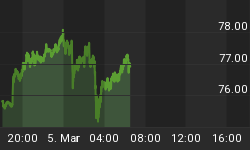In the future, a visit to your family physician, or any specialist, will begin with a quick scan of the computer screen, where a few keystrokes will tell the doctor everything he or she needs to know about you - all the way from how much you weighed at birth, to X-rays of that bone you broke when you flipped your motorcycle thirty years ago, to how much you spent on blood work last year, right up to the hypertension pills you took after dinner yesterday (and maybe even what you ate, although hopefully not).
Much of your medical info is already stored electronically, of course, but much more is stuffed into old paper file folders. Nor is there any centralized database that routes your records wherever they are wanted. That is going to change, and change dramatically.
The present system has too many embedded inefficiencies, and the industry wants them gone with yesterday's used latex gloves. Whether you like it or not, someday soon there will be a collection of bits and bytes that stores all the most intimate details of your health history.
Making that happen is a daunting job, and a touchy one.
On the one hand, think of how much medical data each American accumulates each year. Multiply that by 300 million. The amount of paper currently required to track it all would stretch to the moon. Doctors want to set fire to that stack.
But on the other hand, they don't want their patients' records falling into the hands of every Eastern European hacker for whom such data would be a major arm shot to his fake Viagra business. Data security has to be tight.
Thus software solutions must be developed both to serve and to protect. Billions will be spent in the process of digitizing, maintaining, and guarding medical records, and guess whose pocket the money will be extracted from. Did you select mine?
Don't care for this idea of white jackets anywhere in the world having access to your private info at the click of a mouse? Or don't like the idea of footing the bill for the conversion? Well, tough. On both counts. You won't be able to prevent the medical business from setting up the grand database, nor from using your own money to manufacture the electronic you.
In fact, the government has already installed the plumbing that will feed the big money shower. As in, very big.
That happened on February 17, when President Obama signed the Health Information Technology for Economic and Clinical Health Act (HITECH), which its sponsors had tacked onto the comprehensive American Recovery and Reinvestment Act (ARRA).
Everyone loves ARRA, right? Well, maybe. But citizens who cheered it might not have been quite so happy if they were aware of everything they were agreeing to fund with their hard-earned dollars. Buried inside HITECH is an allotment of $19 billion (yep, that's billion with a B) just for the conversion of paper medical records into electronic.
Tell you who was cheering lustily, for certain: health care software developers. For example, maybe you read about the recent deal whereby Dell acquired Perot Systems, a premium software company, for about $4 billion. What that was largely about was HITECH. Dell didn't have real access to it. Perot Systems - whose annual revenues derive 25% from government and 48% from health care - did. Sound the wedding bells.
Dell, of course, is by no means the only company eager to step into the generous governmental shower stall. You can bet that IBM, Hewlett-Packard, and the rest of the heavies in the field are all busily preparing proposals, if they haven't already filed them.
And the big guys won't have that field all to themselves. There's a lot of cash to be spread around. Smaller competitors will nab their share.
Those are the kinds of companies Casey's Extraordinary Technology searches for and recommends as longer-term investments. The ones whose bottom lines will profit the most from political largesse.
Subscribers learned about one such firm in the September issue. There will be others, and not just in the health care field. Because there is no surer thing. Anyone who has both a solid product and the savvy to play Washington's money game, is going to prosper mightily in the years ahead.
Tech is the most vital industry in the United States, with the best opportunities to strike it rich if you know what to invest in. Just imagine finding the next Google and getting in while it's still a startup... and the chances for that are quite good. Learn more about how to profit from technology - just click here.















